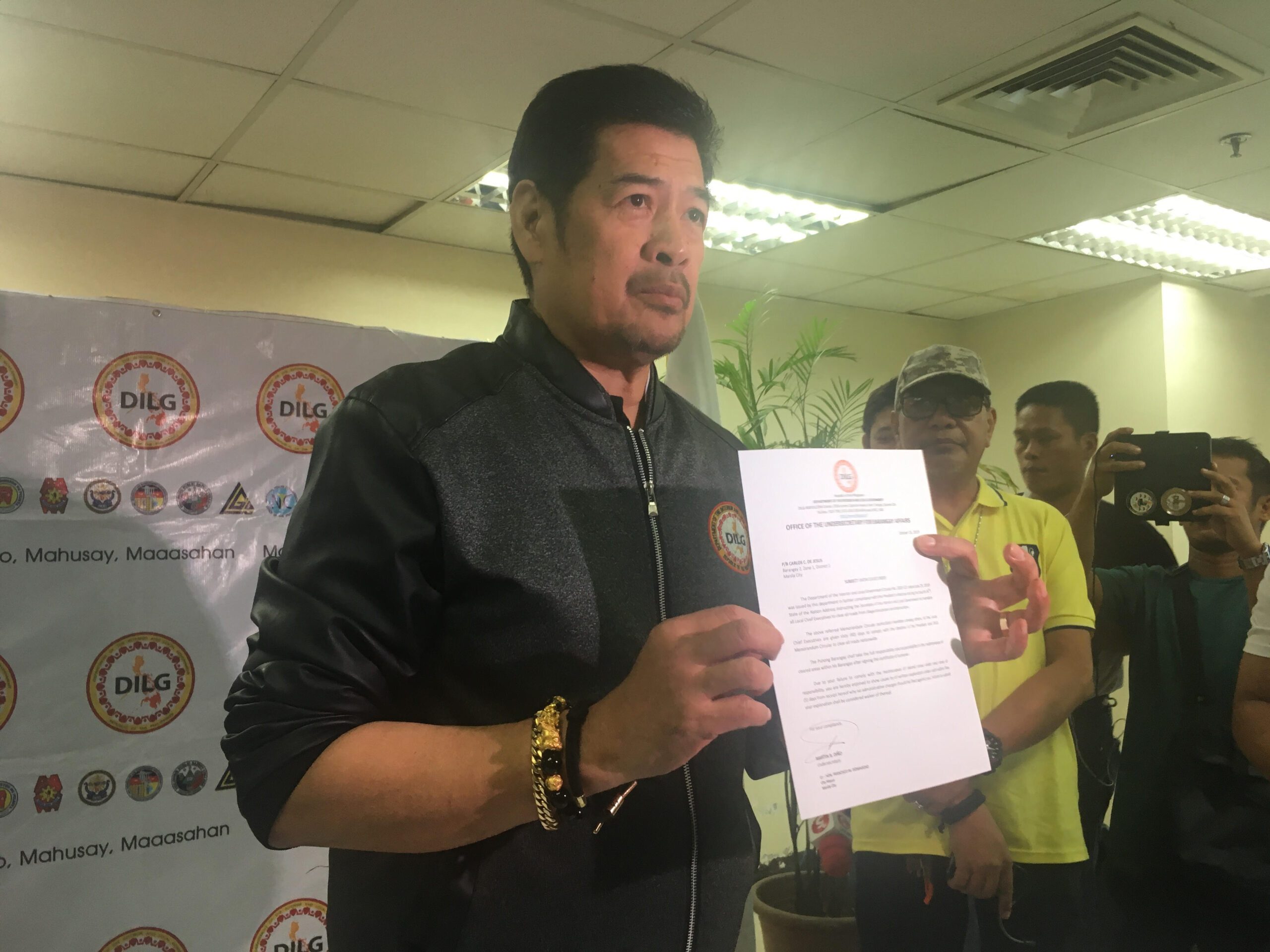SUMMARY
This is AI generated summarization, which may have errors. For context, always refer to the full article.

No, Interior Undersecretary Martin Diño, the privilege of the writ of habeas corpus is not suspended under a state of public health emergency. Human rights are not suspended.
It is as simple and as clear as that.
Diño said over radio DZBB on Saturday, March 21, that there are no more rights as Luzon is on lockdown and other areas under localized quarantines to contain the spread of the coronavirus.
“Wala na ho karapatan. Tandaan niyo state of emergency ngayon. Ang karapatang pantao nawawala pagdating ng state of emergency,” Diño said.
(There are no more rights. Remember we are under a state of emergency. Human rights disappear under a state of emergency.)
Diño took it further: “Kaya pag meron nga pong state of emergency your writ of habeas corpus ay nawawala na po ‘yan.” (So if there is a state of emergency, your writ of habeas corpus also disappears.)
The writ of habeas corpus (produce the body) is a remedy for any person deprived of liberty. It is issued by the court requiring a public official to explain the reason for a person’s detention. (READ: ’24 hour-curfews are unconstitutional and excessive’)
The 1987 Constitution allows the suspension of the privilege of the writ of habeas corpus if there is a proclamation of martial law, meaning, agents can arrest and detain a person without a court order, without being compelled to explain his or her detention.
But President Rodrigo Duterte himself said: “It’s not a martial law.”
And even under martial rule, the 1987 Constitution made sure that not all rights will disappear. Under martial law, even though agents can arrest and detain a person without a court order, the person still has to be judicially charged within 3 days, otherwise, he or she will be set free.
The Commission on Human Rights (CHR) reminded Diño that even the Department of the Interior and Local Government or DILG’s own memorandum guarantees human rights even as local officials are ordered to strictly implement lockdown guidelines.
DILG Memorandum Circular No. 2020-062, Section 5.2.10 says, “LGUs are to ensure that no violations of human rights are committed by any border patrol staff nor any employee or officer.”
“Tao pa rin tayo sa gitna ng anumang sakuna kung kaya ang ating mga karapatang pantao ay nananatili bagama’t limitado. May obligasyon pa rin ang gobyerno na tratuhin ang kanilang mga nasasakupan ng patas, makatao, at sang-ayon sa batas,” the CHR said in a statement.
(Even in a calamity we are still human, so our human rights remain though limited. The government still has an obligation to treat people fairly and humanely, as provided by the law.)
And while the Department of Justice (DOJ) said that warrantless arrests may be done for lockdown violators, the very law it is citing protects the rights of people to liberty.
“RA 11332 itself expressly states that the rights of people to liberty while maintaining and preserving public health and security must be respected,” said Edre Olalia of the National Union of Peoples’ Lawyers (NUPL).
RA 11332 or the Mandatory Reporting of Notifiable Diseases Act punishes “non-cooperation” in a public health emergency – a law seen as being too broad to implement in a lockdown. – Rappler.com
Add a comment
How does this make you feel?
There are no comments yet. Add your comment to start the conversation.